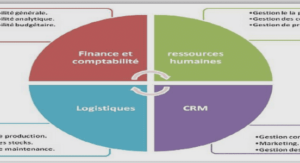GENDER SOCIAL ORDER IN JANE AUSTEN’S NOVELS
SOCIAL CLASSES
Jane Austen’s novels centre around the issue of social class which is not surprising considering the fact that, as we have already seen, class was an important part of society in those days. The character described in her novels is the complex interaction of the various groups which made up the ruling class of Georgian England. The very top of the social ladder is the royalty which is never depicted in Austen’s novels. And Sir Walter Elliot in Persuasion is obsessed with his social status even Sir Thomas Bertram in Mansfield Park who is the best of them overvalues the importance of himself and his family. The professional class Austen’s own social class seems to be the one that is most favoured in her novels several of her heroines marry clergymen like Austen’s own father. The landed gentry seems respected as other heroines marry into the landowning gentry, and Austen’s two most eligible heroes, Mr Darcy in Pride and Prejudice and Mr Knightley in Emma come from this class. However, a negative side of the landed gentry can be seen in Mr Rushworth in Mansfield Park who is morally and intellectually not worth much more than his name signifies. The lower social classes are rarely represented in Austen’s novels. What was later to be called the working class is hardly present at all; the only connection the main characters have with this social class is through the servants, which correctly describes reality as it was at the time. The few glimpses we do catch of this class are of gypsies and rural labourers. Servants were generally not given speaking roles, though Austen did recognize that they had a discrete influence on their masters. The poor are not talked about often, but there is some contact between the world of the upper class and that of the poor. In Austen’s novels the heroine often marries a man with an income as well as a social status markedly above her own. Money is not the only thing that matters. In addition, Elizabeth Bennet turns down Mr Darcy’s initial proposal in Pride and Prejudice by indicating that she is not marrying him only for his fortune. From this point, we may understand the fact that in the relationship between Elizabeth Bennet and Mr Darcy the author appears to support what McMaster calls the “relative flattening of the degrees of distinction above the country gentry” (118). On the other hand, Austen notes the inclination to be highly conscious of the social levels below this class in Emma that is done with irony. In her novels, Jane Austen believed that with the privileges of the upper class came responsibilities for example to treat people with courtesy and respect as well as to handle one’s money responsibly. Page | 43 This can for example be seen in Pride and Prejudice where Elizabeth Bennet turns down Mr Darcy’s proposal because he is proud and pretentious whereas in Persuasion Sir Walter has to leave his house to a man of the navy because he has ignored his responsibilities and only wanted to benefit from the advantages. Therefore, the importance of connections (connexions) in the upper classes is made in Emma where the difference between ‘old’ and ‘new’ upper class can be seen. Mrs Bates used to be the well-known wife of the vicar and after his death, she and her daughter live on a slim income but they still have connections in the neighbourhood which seems more important than all the money in the world. The opposite is shown in the Coles who have a considerable amount of money and many servants, but no connections to speak of. Finally, Austen’s treatment of class in her novels with amused detachment, she registers exactly the social provenance of each of her characters and judges them for the ways in which they judge each other. The importance assigned to class distinction is the source of much of her comedy and her irony, as of her social satire.
Courtship and Marriage Cambridge Advanced Learner´s
Dictionary & Thesaurus defines marriage as “a legally accepted relationship between a woman and a man in which they live as husband and wife, or the official ceremony which results in this”. The definition says all that is necessary to understand the social role of this institution within a society which acknowledges such union. However, the definition does not cover the scope of changes that this institution has gone through in the course of the history influenced by the shifts in religious, societal, political, economic and educational factors. All these aspects have a constant influence on value systems of a particular society in a particular time and they form together the cultural background which in turn influences the ways members of the family related to each other in terms of legal arrangements, structure, custom, power and sex. The marriage-parenthood circle combines these aspects in itself enabling to form the institution of family as the basic unit of a community necessary for the further development through procreation. Courtship and marriage is the central theme of all Jane Austen´s novels and as Austen chose to portray the time and the society she actually lived in. The picture of marriage she presents to readers in her novels arises from the pattern specific for the depicted social classes at that particular time as well. Therefore, at this point it is necessary to specify more closely the social functions of the institution of marriage, the role it played in family strategy and in wifehusband and children-parents relationships of the late 18th and early 19th century middle and upper-classes. Julia, who hopes to conquer Henry but sees her engaged sister making eyes at the dashing newcomer, enquires of Maria ‘Must you always win?’ These few words imply a past of constant rivalry and marriage is a game played for high stakes at Mansfield Park. Mary Crawford will take risks at cards where the ambiguous talk is of ‘buying’ queens and kings – ‘At what price?’ asks Edmund, alert to the subtext of the game and an unsavoury aspect of Mary Crawford that he had not fully recognised before. As a woman living at the time of Jane Austen, marrying well was a prime importance. In Mansfield Park, Sir Thomas, Lady Bertram and Maria all express that it is a woman’s duty to accept a good offer of marriage since an unmarried woman had no means of supporting herself through work with the uncomfortable exception of becoming a governess and would have to rely on the financial resources and the goodwill of her relatives. When Fanny rejects Henry’s proposal on the grounds that she does not love him, she faces a considerable opposition. In this respect, the society of the early nineteenth century was very conscious of class and position. Fanny is constantly aware of her status as a dependent relative at Mansfield Park by Mrs Norris from the moment she arrives. Her lack of status is emphasised by the fact that her mother has given her away although not an uncommon occurrence at that time, in the days of extremely large families and by Tom’s instructions to the carriage driver to ‘drop her off’ as if she were indeed only a parcel to be delivered. Society conducted itself according to strict rules of etiquette and behaviour. One of these rules was that in order to be eligible for marriage, a woman had to be officially ‘out’. To be ‘out’ in Austen’s time meant being allowed to attend the more grown-up social events, such as balls and assemblies and being presented to suitable prospective husbands; in this way Fanny had entered onto the ‘marriage market’. There is considerable concern at Mansfield Park about Fanny’s precise status as expressed by Mary Crawford: ‘I begin now to understand you all, except Miss Price,’ said Miss Crawford, as she was walking with the Mr Bertrams. ‘Pray, is she out, or is she not Jane Austen Bloomsbury 2t00) Because in Jane Austen’s novels the manoeuvring by which a man presents himself to a woman (and her parents) as a possible husband often comes before any signs of love. Charlotte Lucas in Pride and Prejudice offers the most tough-minded and unsentimental analysis, counselling that Jane Bennet should secure her rich husband first and think about love only after they are married. “Happiness in marriage is entirely a matter of chance”37 . She is not the only articulate cynic. Mary Crawford in Mansfield Park possessed a good fortune and on the lookout for a husband, calls marriage “a manoeuvring business” 38. Conduct books of the period tend to represent marriage as a solemn religious duty but in Austen’s novels the harsh economic reality of a young woman’s value in the marriage market is what preoccupies most of the characters. Yet, we think that Charlotte Lucas’s and Mary Crawford’s views are dismal. Austen’s novels highlight the pressures of family expectations unreservedly endorse the aim of marrying for love. Catherine Morland in Northanger Abbey declares, ‘to marry for money I think the wickedest thing in existence’ (ch. 15). She is an unworldly 17-year-old, but her heart is right. And women’s choices are constrained to their own. In the earlier novels of the 18th century, fathers often try to command their sons and daughters with whom to marry. In Austen’s world, as she says in the last chapter of Persuasion, “When any two young people take it into their heads to marry, they are pretty sure by perseverance to carry their point.





